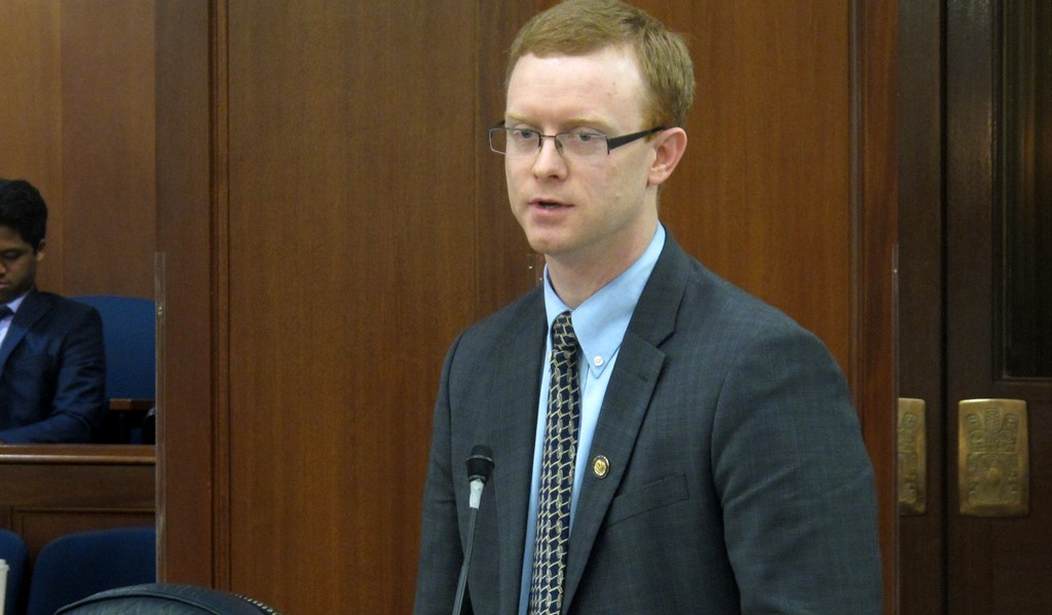I couldn’t believe what I was hearing when I saw this clip from the Alaska State Legislature.
A committee was having a discussion about the abuse and murder of children, and Rep. David Easton somehow thought that bringing up the financial savings to the state from the death of the abused child was worth mentioning.
Seems a bit inappropriate. Even sociopathic. I am pretty sure that even the most fiscally conservative Alaskan is willing to chip in a few bucks to save the life of a child.
I couldn’t believe this until I’d seen the video and read several articles confirming it wasn’t overdubbed somehow.
Alaska Republican Rep. David Eastman says he thinks it could be an economic benefit to society when an abused child is murdered.
pic.twitter.com/9Ksjjblsrk— Jennifer Greenberg (@JennMGreenberg) February 22, 2023
Not that it is relevant, but I am certain that some wag will point out that the Republican representative is from Wasilla, Sarah Palin’s hometown.
JUNEAU – Wasilla Republican Rep. David Eastman sparked outrage online after asking whether there could be economic benefits from the death of abused children.
Eastman asked a series of questions during a MondayHouse Judiciary Committee hearing on adverse childhood experiences — such as physical and sexual abuse on children or growing up in a household marred by domestic violence — and how they can negatively affect a person throughout their lives.
As part of the presentation, documents given to legislators estimated that when child abuse is fatal, it could cost the family and broader society $1.5 million in terms of trauma and what the child could potentially have earned over their lifetime.
Eastman said that he had heard an argument, on occasion, that when child abuse is fatal, it could economically benefit a society.
“It can be argued, periodically, that it’s actually a cost savings because that child is not going to need any of those government services that they might otherwise be entitled to receive and need based on growing up in this type of environment,” he said.
“I’m not even sure how to answer that” responded one of his colleagues. I’m with him there.
Rep. Eastman was elected as a Republican but has been excluded from the majority caucus because he is…difficult to work with. And, apparently, a sociopath.
This is yet another black eye for the Republican Party, which at the national level has endured the ridicule of having sociopathic liar George Santos in their midst.
Sociopaths are of course not exclusively Republican–in my judgment, Adam Schiff clearly appears to be one–but that doesn’t make it any less excusable that we have elected such obvious ones of late.
Being willing to say uncomfortable or unpopular things may be a virtue in politicians–plenty of politicians I admire earned my respect for saying things people don’t want to hear.
But not everything that is controversial is actually worth saying. Some things are just outside the bounds of decency, and we shouldn’t mistake the willingness to challenge conventional wisdom for being a brave truth-teller.
To be fair to Rep. Eastman, he walked back his comments and tried to put them in context. If it weren’t for his history of making similar comments it would be easier to take him at his word:
On Tuesday, Storrs said that he would give Eastman the benefit of the doubt that his questions were an attempt to better understand the information being presented. Storrs said one positive was that Eastman had asked whether spending more on prevention could help limit child abuse. The Alaska Children’s Trust has long sought increased investment in areas like child care to help do that.
Eastman himself did not respond to an interview request. By text message, he said, ”I was pleased to hear ACT advocating against child abuse, but a child’s value comes not from future productivity, but from the fact that every child is made in the image of God.”
It’s an uncomfortable fact that many politicians have sociopathic tendencies, although perhaps they wouldn’t meet the technical definition. Politicians often have a tenuous relationship with the truth and pursue their own ends without a conscience. These are very useful traits for people who need to charm others, elide the truth, seek power, and in the case of presidents be willing to commit to killing others in times of conflict.
But full-blown sociopaths have antisocial tendencies, which even most sociopath-like politicians usually don’t have. Most politicians see their own interests as aligning with society, if for no other reason than pleasing others helps them get ahead. They may not have well-developed consciences, but they understand that their goals generally align with the good of society.
Unfortunately, this isn’t always the case, as is clear with the George Santos case and perhaps Rep. Easton. Clearly he can’t get along with people, seems utterly indifferent to the interests of others, and apparently holds repellent views that got him censured by the legislature and kicked out of his caucus.
It’s shameful that we are associated in any way with these guys.
The real question is: why do we allow such people to get elected? Are we so dedicated to defending our “team” that we refuse to reject even the worst people who claim to be on our side?







Join the conversation as a VIP Member